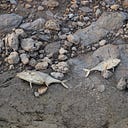Al Shabaab attack on US military base in Lamu County: Overview and Context
About the attack on Camp Simba on 4 January 2020
On 4 January 2020, Al Shabaab militants attacked a US military base airstrip on the mainland in Lamu, killing four people and significantly damaging military vehicles. Camp Simba, a small US naval base with an airstrip to its south, is located in Kwasasi in a sparsely populated area of farmland, inland from the coast of Manda Bay, more accurately called Magogoni.
For years, from this Lamu base, established in 2004, the US military has launched surveillance operations and drone killings into Somalia and Yemen. “The Pentagon [AFRICOM] carried out 63 drone strikes in Somalia” in 2019 and at least 20 in the first two months of 2020.
Elements of media reports at the time of the January attack were inaccurate or misleading. The attack did not take place on Manda island. There, the normal civilian airport closed for a few hours but quickly resumed normal operations and public flights. Neither Lamu island, Lamu town, nor the geographically dispersed community of Lamu were involved or targeted in the attack. There was almost no reporting of the local Lamu farmhand killed.
Three Americans were killed in the attack, including one military service member and two contractors. One Kenyan civilian bystander was killed, local Lamu resident and farmworker Mwalimu Chengo, who was shot as the militants advanced. AP reported that an “American official said five Shabab fighters were killed in the early-morning firefight.”
AP: “The Africa Command’s statement said that six contractor-operated civilian aircraft were damaged, but The Associated Press, citing an internal Kenyan police report, said the damage was much more extensive, including two American helicopters and multiple American vehicles at the airstrip.
Two weeks later, the US military delivered replacement vehicles, including six attack helicopters, to the base. “The new MD-530F attack helicopters will slowly replace Kenya’s aging MD-500 utility helicopters, which provide reconnaissance support for Kenyan ground forces.”
Other attacks
On 28 December, 2019, a suicide truck bombing in Mogadishu, Somalia, killed at least 85 people, including dozens of students, many of them young women studying science, and wounded 125. Al Shabab claimed responsibility for the bombing.
In southern Lamu County, on 2 January, “suspected Al-Shabaab militants attacked a bus headed to Lamu from Mombasa” (BBC). Kenya Defence Forces announced that they killed four Al Shabaab fighters suspected of being involved.
On 7 January, Reuters reported that, in Garissa County, four Kenyan school children (three from one family) and a teacher were killed (and three children wounded) in a gunfight between Kenyan police and Al Shabab militants who attacked a telecommunications mast in the third deadly incident that week.
Events since 4 January attack
On 12 January, the African Union Mission in Somalia (Amisom) and US Africa Command (Africom) warned that “Al-Shabaab have built sufficient resilience and weaponry to keep launching deadly attacks in the country” (Daily Nation).
Also on 12 January, the China Communications Construction Company (CCCC) announced that it temporarily suspended construction of the Lamu Port, south of Camp Simba, causing casual labour job losses.
On 19 January, Al-Shabaab militants entered Pandanguo village near the Boni Forest in northern Lamu County, and interrogated and raided a farmer’s maize field, and then fled into the Boni Forest, according to news reports.
On 15 February, the US Africa (AFRICOM) commander visited Lamu and announced that they would seal loopholes to be more prepared for future attacks, according to Garowe Online, a Somali news outlet.
On 26 February, the US military announced that, using airstrikes, they killed a senior Al-Shabaab leaders who was involved in the attack, as reported by The Standard.
In March, the Kenyan government suspended schools in Garissa County after repeated targeted attacks by Al Shabaab.
Telecommunications
There has also be telecommunications-related violence between Kenya and Somalia. According to Somalia Newsroom, “The Kenyan military has been responsible for incurring between $2–5 million in damages to [Somali company] Hormuud telecom masts, according to estimates from the company and the Somali government,” and also accused Kenyan military of killing and torturing the telecommunications firm’s employees, a claim which the UN has corroborated. (Hormuud report in PDF on extrajudicial killings.)
